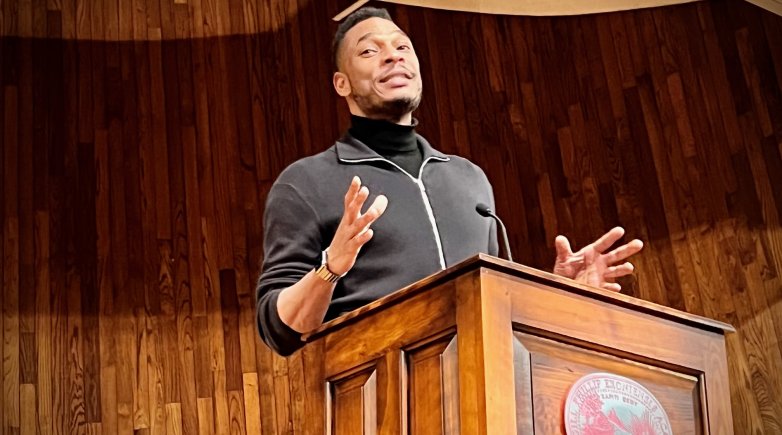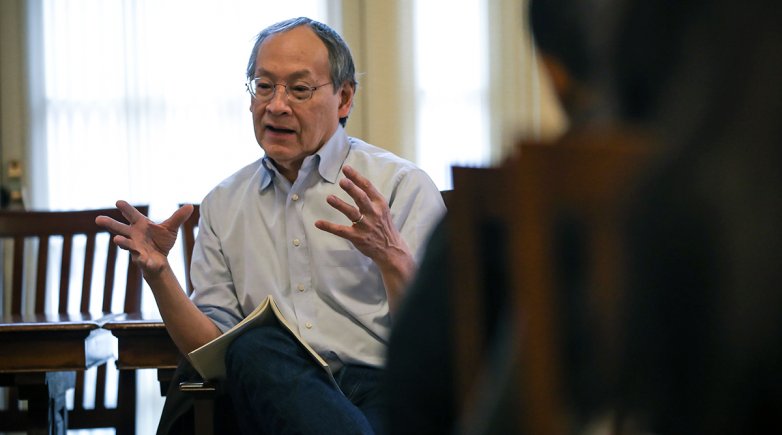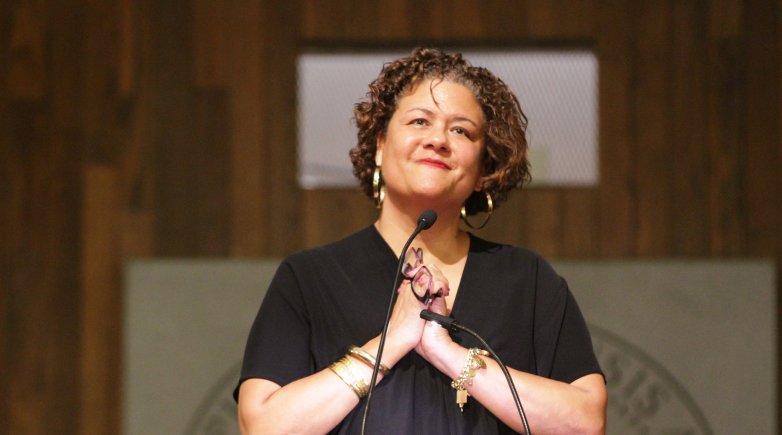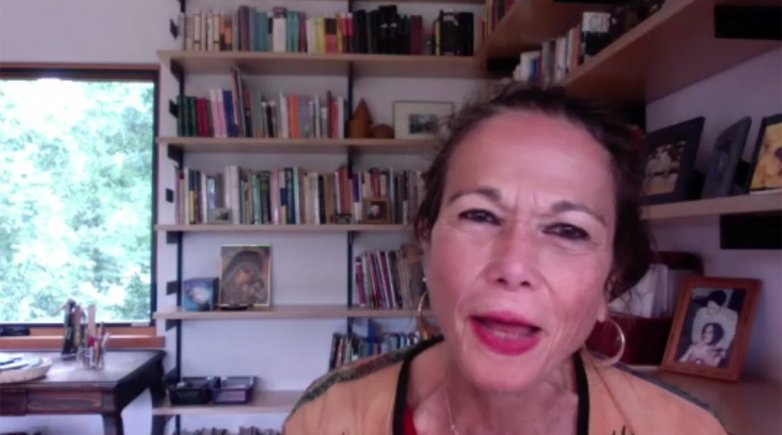Terrance Hayes pens love letters to his 'Assassin'
Nationally acclaimed poet serves Exeter as Lamont Poet for winter term.
Terrence Hayes speaks at Assembly Hall on Feb. 16, 2022.
The sonnet is the valentine of poems, a love letter of verse born in Italy and shared with a kiss for most of eight centuries. “How do I love thee?” asked Elizabeth Barrett Browning in a sonnet. “Let me count the ways.”
Which makes all-pro poet Terrence Hayes’ choice to deploy the convention in his 2018 collection American Sonnets for My Past and Future Assassin curious at first glance. Love notes? Not these sonnets. Hayes’ poems are live grenades.
He shared with the Exeter community his motivations, his inspirations and his creative process Wednesday night as the Lamont Poet for winter term. Reading from the collection and from other works, then fielding questions, Hayes beguiled an Assembly Hall audience that included Exeter students currently studying American Sonnets.
The Lamont Poet Series was established in 1982. Two poets are invited to campus each year to give readings of their poetry and — in pre-pandemic times — to attend English classes. Past visitors have included poets laureate and presidential inauguration poets. The likes of Allen Ginsberg, Gwendolyn Brooks, Seamus Heaney and Donald Hall have served as Lamont Poets.
Hayes fits comfortably among those ranks, and not only because his resume is so rich — though it unquestionably is. The author of six poetry collections — Muscular Music (Tia Chucha Press, 1999), Hip Logic (Penguin, 2002), Wind in a Box (Penguin, 2006), Lighthead (Penguin, 2010), How to Be Drawn (Penguin, 2015) and American Sonnets for My Past and Future Assassin (Penguin 2018) — he has won the National Book Award; a Whiting Award; an NAACP Image Award; and fellowships from the National Endowment for the Arts, the Guggenheim Foundation, and the MacArthur Foundation. He is on the board of chancellors of the Academy of American Poets.
He also teaches creative writing at New York University, but he told his Exeter audience when asked how being a teacher has influenced his poetry that he tries not to cross the streams. He doesn’t teach his own poetry, and he said his mom introduces him as a professor — not a poet.
But it’s the writing process that seems to consume him, never more so perhaps than when he started the work that would become American Sonnets. Hayes said the election of Donald Trump in 2016 launched him into action — he vowed to write a poem every day of Trump’s presidency. The “assassin” in the collection’s title (and in the name of 72 of the sonnets within) was initially an America that would make such a choice at the ballot box, and in an interview in 2018, he explained why the traditional love poem seemed the right vehicle to channel his frustration and pain.
“I’m trying to go in one way and come out another way. So, yeah, I’m trying to see how many turns I can fit into a poem, but also, I like the sonnet as a way of addressing an idea: How can I write a traditional love poem to someone or something I don’t deem worthy of my love? I just don’t know what other form would be able to hold this particular moment.”
One of the first poems he read Wednesday, which comes sixth in the collection, illustrates his point:
I lock you in an American sonnet that is part prison,Part panic closet, a little room in a house set aflame.I lock you in a form that is part music box, part meatGrinder to separate the song of the bird from the bone.I lock your persona in a dream-inducing sleeper holdWhile your better selves watch from the bleachers.
Hayes also read some of his newer work, including unpublished material, such as a long poem where he takes on the soothing voice of Bob Ross, the learn-to-paint Svengali who has found new popularity on YouTube two decades after his death. In the poem, Ross is guiding his reader through the creation of a painting, as usual, only this time he is painting on a black canvas with only black paint.
A question-and-answer session dug into Hayes’ process further — one that emphasizes creation and revision over a final destination — and he closed the evening by answering a question about what he thinks is the difference between a song and a poem. With a diplomatic nod to Bob Dylan and other famous lyricists, he said songs use music as a crutch that poems don’t get to use. “But I’m a poet,” he said with a smile. “Of course I’d say that.”



